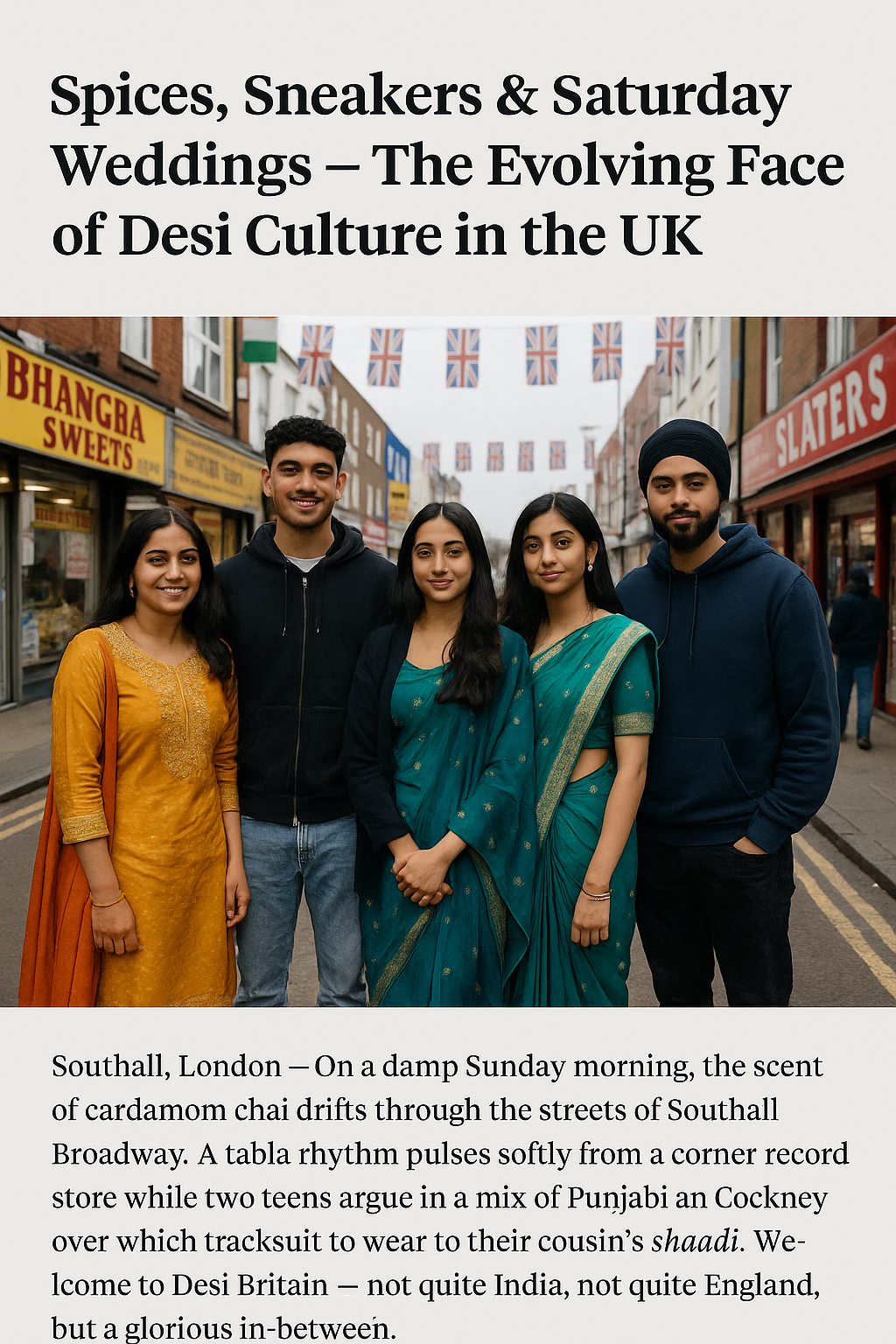Spices, Sneakers & Saturday Weddings – The Evolving Face of Desi Culture in the UK
By DesiMedia Team | April 28, 2025 |

From Uttarkashi to the UFC
Southall, London – On a damp Sunday morning, the scent of cardamom chai drifts through the streets of Southall Broadway. A tabla rhythm pulses softly from a corner record store while two teens argue in a mix of Punjabi and Cockney over which tracksuit to wear to their cousin’s shaadi. Welcome to Desi Britain — not quite India, not quite England, but a glorious in-between.
From Partition to Primark
The Desi presence in the UK dates back over a century, but it truly exploded after the 1947 Partition. Families from Punjab, Gujarat, Bengal, and beyond came seeking opportunity — and brought with them their parathas, prayers, and prized Govinda VHS tapes.
By the 1980s, places like Southall, Leicester, and Birmingham had become microcosms of the subcontinent. Grocery stores sold Amul butter next to Heinz ketchup. Aunties bargained in Gujarati at Tesco. And every desi household had at least one room where shoes weren’t allowed.
The Second-Gen Remix
Today's British-born desis — the children and grandchildren of immigrants — live a life their parents couldn’t have imagined.
- They wear Jordan 1s under kurtas.
- They quote Sidhu Moosewala and Shakespeare in the same sentence.
- They drink oat-milk chai and attend Bhangra raves with eco-friendly bindis.
Identity is no longer a box to tick. It’s a playlist — part Diljit, part Dave, with a sprinkle of Dua Lipa.
Shaadis, Showcases, and Simmering Masala
If there's one thing that unites all UK desis, it's the Big Fat Saturday Wedding.
In places like Wembley or Wolverhampton, wedding halls are booked two years in advance. Mehendi nights come with live DJs and Instagram backdrops. Uncle ji sneaks whisky in the parking lot while little kids do viral TikTok dances in sherwanis.
And don’t forget the food:
- Paneer tikka with a side of butter chicken tacos.
- Fusion? Maybe. Fire? Definitely.
Clash or Celebration?
There are, of course, tensions.
Some older generation desis worry about “culture dilute ho gaya.” Some younger ones wrestle with racism, visa fears, or being seen as "not desi enough" or "not British enough."
Yet for many, the dual identity is a superpower. It means knowing how to tie a tie and a turban. It means being able to cook aloo gobi while defending your dissertation on postcolonial theory.
A Desi Future in Albion
From British-Asian MPs like Rishi Sunak to breakout artists like Joy Crookes and Riz Ahmed, desis are shaping the UK’s future — not from the sidelines, but from the spotlight.
Back in Southall, a new mural reads:
“We are the dreams of our elders, and the blueprint for our children.”
It's not just about preserving culture. It's about evolving it. Like masala in a pressure cooker — bold, beautiful, and impossible to ignore.